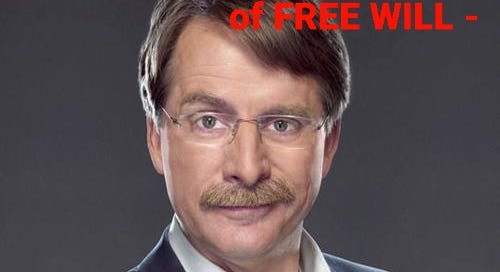Pastor Tom Belt, drawing largely on David Bentley Hart, advances a Maximian irrevocability thesis that holds intellect and will to be irrevocably open to God.
He did not advance it as a direct over against Ed Feser's reflections on the matter but did use those reflections as his point of departure.
Pastor Belt wrote:
I’ll acknowledge at the outset that given Feser’s Aristotelian-Thomistic framework – its definitions, restrictions, etc. – my reflections are simply category mistakes. I would not try to challenge Aquinas’ irreversibility thesis within such a framework.
Now, at the time, he was being more charitable toward Feser's argument than was warranted, for it seemed to me that not much heavy lifting was required to refute Feser's post-mortem anthropology. All one had to do was to reject his highly speculative angelology and his analogical Ed - ifice would crumble. (Not to be too coy, I’m just saying use Scotus’ angelology is all.)
Beyond that, even, it had already seemed to me that not even the definitions & restrictions of an Aristotelian framework, whether Scotist or Thomist, could sustain the Infernalist account, which is otherwise grounded in - not algorithmic metaphysical conceptions, but - theological commitments.
Using theological commitments, including those of theological anthropology, which I already had in common with both Scotists (e.g. Mary Beth Ingham) and Thomists (e.g. Eleonore Stump), it had already seemed to me that one would have to make rather ad hoc exceptions to certain of our shared theological priors in order to reject any essential & indicative universalism.
Those prior commitments can be classified as regarding our beliefs pertaining to
1) Interactions
2) Intellect
3) Infused grace
4) Impeccability
5) Immediate Presence
6) Image of God
Our Shared Theological Anthropology
WHAT IF
Interactions between divine & human wills take place both universally & particularly, ordinarily & extraordinarily, abudantly & superabundantly, in mediated & immediate presences and in the gratuities of both creation & grace;
Intellect is operative not determinative (partially co-causal) in our self-determinative volitional acts, where divine & human wills interact. The will, per its rational potency, remains limited to the logoi of being, well-being & eternal being. Divine & human wills remain underdetermined by external factors precisely because they're rational;
Infused grace & justifying faith are gratuitously gifted and - not only not merited, but - do not connect divine & human wills via choices to assent or refuse, i.e. velle or nolle, but rather in the will's freedom not to act, i.e. non velle, quiescence or "absence of refusal" of grace. God thus gifts infused graces, including the good will of our justifying faith, even without our assent, ever respecting our libertarian free will, in moments when we cease to refuse grace.
Impeccability of the blessed comes about because, due to God's Immediate Presence, which closes a certain epistemic distance, our libertarian freedom will engage volitional acts of - not assent & refusal (velle & nolle), but - either assent or absence of refusal (velle or non velle), where non velle reflects our valuable human capacity of self-restraint.
Image of God refers to all human persons, imagoes Dei, as expressions of the immutable, inviolable divine logoi, whether or not in a state of grace, living or dead. Because divine & human wills are located in our natures, essentially, all will necessarily share the same post-mortem libertarian freedom to engage volitional acts of - not assent & refusal (velle & nolle), but - either assent or absence of refusal (velle or non velle).
THEN,
The Grace (of justifying faith, even) shall not be refusable post-mortem, this due to the divine Immediate Presence, but may indeed be Infused into all such Impeccable persons, whether per their assent or absence of refusal, who as divine Images necessarily will enjoy post-mortem libertarian freedom.
While Scotus insists that, while no one can "nolle" a perfect being, not even the Beatific vision can determine or necessitate the choice to "velle." Still, the choice to "non velle" remains eternally operative.
What, then, do you imagine God will do in eternity for any & every person, even without their assent, that is - given their "non velle," "absence of refusal" or quiescence?
This is to ask, why wouldn't God infuse unmerited grace to all, especially since it manifestly would violate no one's libertarian free will (as properly conceived)?
The answer to this question is not to be found in our theological anthropology, speculative angelology or metaphysics, whether Neoplatonic, Scotist or Thomist. Those realities offer no such constraining logics.
The answer lies only in one's beliefs about God's character, specifically, whether He merely permits the possibility of parasitic existents as unavoidable (but never necessary) temporal subcontraries or clearly accepts some probability (accepting evil as a justifiable price or cost!) that they'll perversely transist, collectively, as an eternal Manichean residue (cf DBH's game theoretic "moral modal collapse” of the distinction between divine antecedent and consequent wills). This would amount to the de facto acceptance of evil into God's very character protologically whatever the eschatological outcome!
"But what about you?” he asked. “Who do you say I am?”
Matthew 16:15





